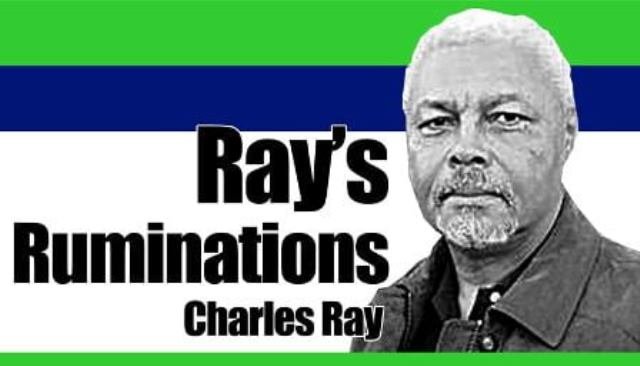
When I was in sixth grade, we were required to memorize and recite a poem. The poem assigned to me was Rudyard Kipling’s If, a poem of advice from a father to his son that was written in 1896.
The four, eight-line stanzas tell the son how to deal with many different situations in life. One of the parts that has stuck with me since I was an eleven-year-old sixth grader who was struggling to cope with having been skipped a grade and now had to deal with classmates all of whom were older than me was ‘If you can fill each unforgiving minute with sixty seconds worth of distance run—yours is the Earth and everything that’s in it, and—which is more—you’ll be a Man, my son!’
This first half of the last stanza has been the main guiding principle of my life since that day I stood on that dusty stage staring down at the faces of my older classmates.
I somehow managed to memorize the entire poem, but most amazingly, managed to recite it in front of an audience—not actually my peers except the fifth graders who the year before had been my classmates in fourth grade—without throwing up or freezing. But that’s another story for another time. The issue here is the impact this poem had then and continues to have on my life.
The part about filling every minute with meaningful activity struck me then and has stuck with me for the past sixty-plus decades. I’ve passed the poem along to young people I’ve mentored and given it as the inspiration for many of the things I’ve accomplished in life. It’s my response when people make comments or ask questions about my ability to get so much done in an average week.
For example, at the moment, I’m teaching an online graduate course in history with eighteen students; writing two westerns a month for my publisher, managing a think program on Africa which involved a monthly panel discussion and an article every couple of months; and actively engaged in traveling and speaking engagements in the eastern United States.
Along with that, I get in a two to four mile walk every day, weather permitting, daily exercise, and seven hours sleep each night. I also take my significant other shopping once or twice a week. When my friends or colleagues express awe at my schedule, I just remind them that my mantra is to ‘fill each unforgiving minute with sixty seconds worth of distance run.’
Being somewhat anal retentive, I tend to organize everything into a routine. This enables me to devote a large percentage of my mental capacity to creative activities, such as my novels, unique lectures, or these columns.
Here’s an example of how I organize a typical day. It starts with the fact that each day has 24 hours, each hour has 60 minutes, and each minute has 60 seconds. While time seems relative—the older you get the faster it goes—these are still fixed numbers.
So, let’s take one of those 24-hour days. I sleep 7 hours. That leaves 17 hours. Three meals (assuming we’re not eating out) take 20 minutes each, consuming (no pun intended) another hour. That leaves 16 hours to go. My daily cleanup routing takes about half an hour, and it takes thirty minutes to an hour for me to exercise and do my daily walk.
So let’s say a total of two hours for that which leaves 15 hours each day. How I use those 15 hours varies depending on what I’ve decided or agreed to do that day. If it’s a traveling lecture, and assuming it’s within a hour or two drive, transportation both ways leaves me 11 hours. Most speaking engagements are one to two hours—let’s be generous and say two hours, I still have 9 hours unaccounted for.
If I decide to watch TV—I watch the news in the morning as I do breakfast—I usually limit that to two hours unless there’s something special on and then I’ll binge for three hours.
After all that, I have six hours to do with as I please, and every day, whether I’m at home or on the road, a significant percentage of that six hours is devoted to creative activities of one kind or another. In other words. I endeavor to ‘fill each unforgiving minute with 60 seconds of something useful and meaningful.
Now, if you’ll excuse me, I have a chapter to write. | NWI




